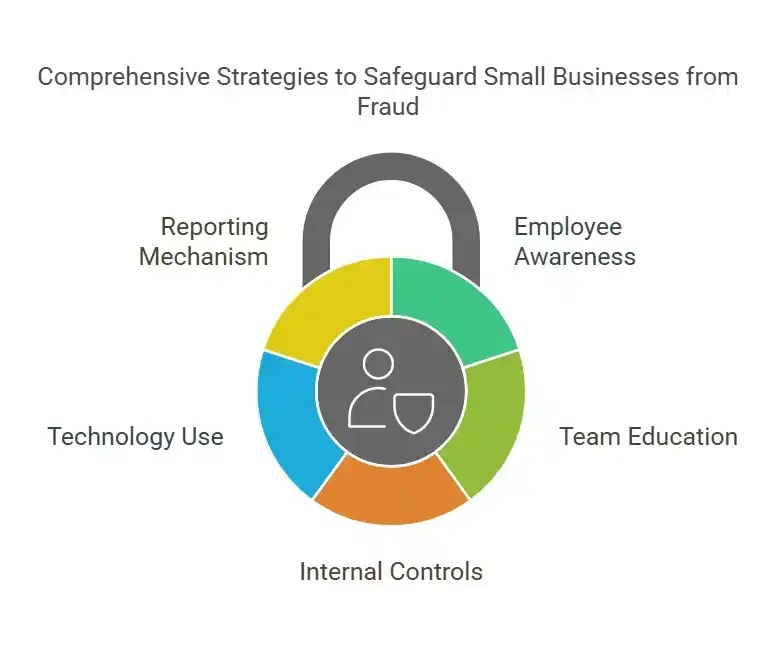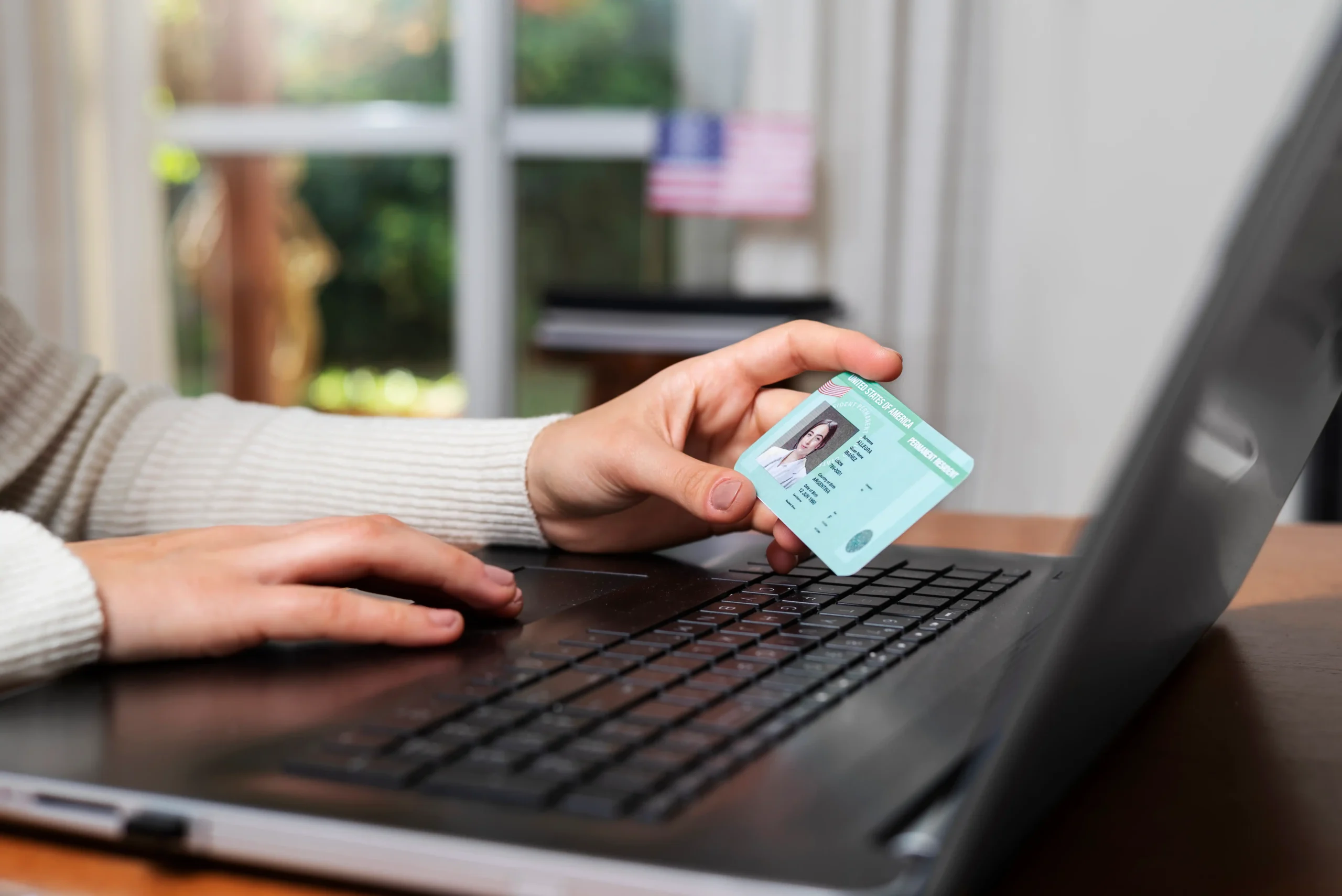Small business fraud cases are a growing concern, with criminals finding new ways to exploit gaps in security and internal controls. Many businesses failed to detect fraud in time, facing trust issues with customers, financial losses, and even the risk of shutting down.
According to the AFP information published by PNC, 51% of businesses that experienced fraud could not recover their lost funds, this reflects the devastating impact of fraud and the need for protection measures. In this post, you’ll learn about real small business fraud cases and practical strategies to help you protect your companies from similar threats.
Need support after a scam? Join our community today.

6 Small Business Fraud Cases and Lessons Learned
While fraud schemes keep changing, small business owners take steps to protect their reputation, earnings, and private data. However, some fraud detection and prevention techniques aren’t always enough. In these cases, examining real incidents helps reveal common scam tactics and the measures that could have stopped them.
Here are 6 cases of small business fraud, their financial and legal consequences, and key lessons to prevent similar threats:
1. Top Scams Targeting Small Businesses and How to Avoid Them
The Federal Trade Commission (FTC) and the Better Business Bureau (BBB) warn that small businesses are common targets of fraudulent schemes that can cause serious financial and operational damage.
Common Scams to Watch For
- Scammers send fake invoices, hoping businesses will pay without verifying them.
- Fraudsters claim they are “an order” and later demand payment for goods never requested.
- Businesses are tricked into paying for ads or listings in non-existent directories.
How to Avoid These Scams?
- Verify all invoices before making payments.
- Double-check order confirmations with suppliers.
- Consult official business directories before purchasing advertising services.
- Report suspicious activity to the Small Business Administration (SBA) or BBB.
2. $50,000 Scam Alert: Business Owner’s Vigilance Leads to Recovery
According to Wmar2 News, a small business owner, named Hyeon-Jin Kwon, became the target of a sophisticated bank imposter scam that nearly cost her $50,000.
How Did the Scam Work?
- A thief stole her credit and debit cards, making unauthorized purchases.
- A fraudster, pretending to be a bank representative, convinced her to approve a fraudulent wire transfer of $56,000.
Was Any Money Recovered?
- Kwon detected unusual transactions and reported them immediately.
- Chase Bank recovered part of the stolen funds.
- Bank of America denied her claim for $13,500.
- Authorities arrested the suspect, linking them to similar fraud cases.
What Can Businesses Learn from This?
- Always verify bank communications independently and implement stronger security measures to prevent financial fraud.
Learn about how to identify fake bank fraud alerts and purchase notifications to keep your money safe.
3. Washington Small Businesses Targeted by Fraudulent Secretary of State Notices
According to the Office of the Attorney General, several small businesses in Washington fell victim to a scam involving fake official letters demanding excessive payments for state business filings.
How Did the Scam Work?
- Fraudsters sent letters posing as the Secretary of State’s Office.
- These letters falsely claimed businesses needed to pay fees or risk fines and dissolution.
- The documents appeared legitimate, featuring a Washington state seal but listed a Sacramento return address and a non-governmental website (.org).
What Actions Were Taken to Investigate?
- Over 40 complaints were filed with authorities.
- The Attorney General’s Office warned business owners and launched an investigation.
- Business owners were urged to verify correspondence with official state agencies before making payments.
What Can Businesses Learn from This?
- Always verify government-related communications directly with the issuing agency and be cautious of unexpected payment demands.
Have questions about dealing with scams? Contact us for support.

4. Card Machine Scam Leads to Suspended Sentences for Men Who Defrauded Bristol Businesses
According to BBC, a group of fraudsters manipulated card terminals to send unauthorized refunds, stealing thousands of dollars from small businesses in Bristol, UK.
How Did the Scam Work?
- Abdullah Said-Ahmed and Tahir Mohammed used stolen or compromised card terminals.
- They processed fake refunds to bank accounts controlled by the scammers.
- They distracted shop employees to avoid detection.
What Were the Legal Consequences?
- Said-Ahmed and Mohammed received suspended prison sentences and mandatory unpaid work.
- A third accomplice, Omar Said-Baker, pleaded guilty but failed to appear in court, leading to an arrest warrant.
What Can Businesses Learn from This?
- Small business owners should monitor transactions closely, restrict refund access, and use security cameras to detect suspicious activities.
5. $2.6 Million Settlement in Virginia Small Business Fraud Case
According to Young Law Group, a Virginia-based company, R&K Enterprises Inc., was accused of fraudulently securing federal contracts by misrepresenting its eligibility as a small business.
How Did the Fraud Work?
- R&K Enterprises falsely claimed to meet the size requirements for small business set-aside contracts.
- Investigators found undisclosed affiliations with another company, K&P Management Inc., which violated federal eligibility rules.
- The deception allowed R&K to win government contracts meant for legitimate small businesses.
What Were the Legal Consequences?
- The company agreed to pay $2.6 million to settle allegations under the False Claims Act.
- The case confirmed federal efforts to protect small business opportunities from fraudulent claims.
What Can Businesses Learn from This?
- Businesses applying for government contracts should accurately report their size and affiliations, as misrepresentation can lead to extreme financial penalties and legal action.
6. Fraud by a Postal Worker: $1.6 Million Stolen in Tax Refund Checks
According to People Magazine, a former U.S. Postal Service employee, Hachikosela Muchimba, planned a large-scale fraud scheme by stealing and cashing tax refund checks for residents along his mail route in Washington, D.C.
How Did the Fraud Work?
- Over nearly three years, Muchimba stole and deposited nearly 100 Treasury tax refund checks.
- The fraudulent deposits totaled over $1.6 million.
- He used the stolen funds to finance a costly lifestyle, including luxury vacations at Bulgari Resort Bali and visits to high-end clubs.
What Were the Legal Consequences?
- Muchimba was convicted on 20 counts of theft and fraud.
- He faces up to 30 years in prison for each count of bank fraud and five years for each mail fraud count.
- Authorities uncovered the scheme after investigating a missing $14,000 check, which led to the discovery of misappropriated funds.
What Can Businesses Learn from This?
- Small businesses and individuals should track mailed payments, report missing checks immediately, and consider electronic payment options to reduce bank fraud risks.
How to Protect Against Small Business Fraud?
Fraud can have serious financial and reputational consequences for small businesses. Implementing strong security measures can help prevent losses and protect your business operations. Use these fraud detection techniques:
1. Know Your Employees
- Run background checks before hiring, especially for positions handling cash or sensitive data.
- Monitor unusual employee behavior, such as sudden lifestyle changes or resistance to audits.
- Establish clear policies on financial oversight and accountability.
2. Educate and Train Your Team
- Plan regular fraud prevention training to help employees recognize scams, phishing attempts, and internal fraud.
- Encourage staff to report suspicious activities without fear of retaliation.
- Guide cybersecurity best practices, such as recognizing fake emails or verifying unusual payment requests.
3. Implement Robust Internal Controls
- Distribute financial duties to prevent a single employee from handling all financial transactions.
- Require multiple approvals for large payments and wire transfers.
- Schedule regular audits to detect and address inconsistencies in financial records.
4. Use Technology and Monitoring Tools
- Use fraud detection software to monitor transactions and flag suspicious activity.
- Implement multifactor authentication (MFA) for banking and payment systems.
- Regularly update cybersecurity software to protect against phishing and hacking attempts.
5. Establish a Reporting Mechanism
- Create a confidential reporting system for employees to report fraud concerns.
- Promote a culture of transparency where fraud prevention is a shared responsibility.
- Provide multiple reporting channels, such as hotlines or anonymous email submissions.
6. Stay Informed About Emerging Threats
- Monitor new fraud tactics, such as deepfake scams and AI-generated phishing attacks.
- Stay updated with fraud prevention resources from organizations such as the Federal Trade Commission (FTC) and the Better Business Bureau (BBB).
- Join business networks or associations that share fraud alerts and prevention strategies, such as Cryptoscam Defense Network (CDN).

Protect Your Small Business with CDN’s Resources
Considering that small business employees face 350% more social engineering attacks than those at larger companies, according to strongdm, owners must make security a priority. This means implementing tools to protect private information and verifying that their teams are trained to recognize warning signs from scammers.
At Cryptoscam Defense Network, we are committed to exposing fraud, educating businesses, and providing the tools needed to prevent fraud and financial scams. Establishing solid defenses today means securing your business for the future.
We Want to Hear From You!
Fraud recovery is hard, but you don’t have to do it alone. Our community is here to help you share, learn, and protect yourself from future frauds.
Why Join Us?
- Community support: Share your experiences with people who understand.
- Useful resources: Learn from our tools and guides to prevent fraud.
- Safe space: A welcoming place to share your story and receive support.
Find the help you need. Join our Facebook group or contact us directly.
Be a part of the change. Your story matters.
Frequently Asked Questions (FAQs) About Small Business Fraud
What Are the Most Common Types of Fraud That Affect Small Businesses?
The most common types of fraud affecting small businesses include Employee fraud (embezzlement, payroll manipulation), external fraud (phishing, fake invoices), and supplier fraud (deceitful practices by vendors or contractors).
How Does Technology Contribute To Small Business Fraud Risks?
Technology increases small business fraud risks by facilitating cybercrimes such as hacking and phishing attacks. These exploit vulnerabilities like outdated software, weak passwords, or lack of encryption, common in small businesses with limited IT resources. Additionally, online transactions and remote work expand access to fraudsters.
How Can Small Businesses Recover From Fraud Losses?
Recovering from fraud in a small business requires immediate action:
- Report the incident to law enforcement, financial institutions, and fraud prevention organizations.
- Open a fraud internal investigation, strengthen security measures, and educate employees to prevent future scams.
- Seeking legal advice and insurance coverage can also help mitigate financial damage.
Photos via Freepik.







